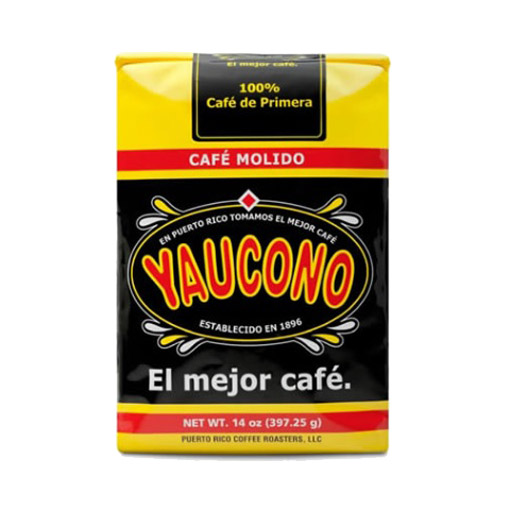Caribbean Travel Tips
Financial Tips for Your Caribbean Trip
Planning a vacation to the Caribbean is an exciting adventure, but managing finances during travel requires careful consideration. Whether you’re island-hopping through the Bahamas or lounging on the beaches of Puerto Rico, it’s essential to stay within your budget while enjoying all the region has to offer. With numerous islands, diverse cultures, and various activities, knowing how to manage your money abroad can make the difference between a stress-free trip and unexpected financial strain. This guide provides essential financial tips to ensure your Caribbean adventure remains fun and financially sound.
1. Set a Realistic Budget
Before you embark on your journey to the Caribbean, it’s crucial to establish a travel budget. Begin by researching the cost of flights, accommodations, meals, transportation, and activities for your chosen destinations. The Caribbean can range from relatively affordable to high-end luxury, depending on where you go. For instance, countries like the Dominican Republic and Jamaica offer budget-friendly options, while islands like St. Barts and the Cayman Islands can be more costly.
Break your budget into categories:
- Flights and Accommodation: Look for deals early and consider off-peak seasons for reduced costs.
- Daily Spending: Set aside funds for food, souvenirs, and entrance fees to attractions.
- Emergency Funds: Always reserve a portion of your budget for unexpected situations such as medical needs or flight changes.
Monitoring your spending from the outset will help you enjoy the Caribbean without the stress of overspending.
2. Currency and Exchange Rates
Understanding the local currency is key when traveling to the Caribbean. While many Caribbean islands accept U.S. dollars, some have their own currency, such as the East Caribbean dollar (XCD) used in nations like Antigua, St. Lucia, and Grenada. Be sure to familiarize yourself with the current exchange rate of your destination’s currency against your home country’s.
A helpful tip is to download a currency converter app on your phone for real-time rates, which can prevent overpaying when exchanging money or making purchases. Additionally, it’s advisable to exchange a small amount of money before leaving your country to cover immediate expenses such as transportation from the airport or small purchases.
While many hotels and tourist areas accept credit cards, carrying cash is often necessary for small local businesses, markets, and tipping.
3. Avoid Overdraft Fees and Foreign Transaction Fees
One of the hidden costs that can quickly eat into your budget is foreign transaction fees charged by your bank or credit card company. These fees typically range from 1% to 3% per transaction. Before you leave for your Caribbean getaway, review your bank’s policies on international transactions, and consider applying for a travel-friendly credit card that doesn’t charge these fees.
Another fee to be aware of is ATM withdrawal fees. While ATMs are available on most Caribbean islands, withdrawing cash from an international ATM can come with hefty fees. Plan ahead by bringing enough local currency or withdrawing larger amounts at once to minimize fees. Notify your bank of your travel plans to avoid your card being frozen for suspected fraud when making transactions abroad.
4. Use enabled cards in the Caribbean
One of the most convenient ways to handle your finances during your Caribbean trip is by using credit and debit cards. However, not all cards are accepted everywhere in the region, so it’s essential to choose the right ones before departing.
International Credit Cards: Visa and Mastercard are widely accepted across the Caribbean islands, especially in tourist areas. Whether you’re in Barbados, Jamaica, or the Dominican Republic, most hotels, restaurants, and retail stores will accept these cards. However, in more remote areas, it’s still wise to carry cash, as smaller businesses may not have card terminals.
American Express and Discover: While American Express (Amex) is accepted in major establishments in some Caribbean countries, its acceptance is more limited compared to Visa and Mastercard. Discover cardholders should expect even fewer options for use, as it’s less common in the region. However, there are many sites that accept American Express. So this is a good option.
Prepaid Travel Cards: These cards, offered by many banks, allow you to preload money in your home currency and convert it to the local currency of your destination. They are safer than carrying large amounts of cash and can be used similarly to debit cards, but be sure to check where they are accepted and any associated fees.
Ensure you notify your card issuer about your travel dates to avoid the inconvenience of having your card declined due to suspected fraudulent activity. It’s also wise to carry more than one card in case you encounter issues with acceptance or lost/stolen cards during your trip.
5. Plan for Gratuities and Tipping
Tipping practices vary throughout the Caribbean, so it’s important to understand the local customs of your destination. In most Caribbean countries, tipping is expected and appreciated, especially in the tourism and service industries.
- Restaurants: A 10-15% tip is generally expected if it isn’t already included in the bill. Be sure to check your receipt before adding a tip, as many restaurants in tourist areas automatically include a service charge.
- Hotels: Tipping hotel staff such as housekeepers, bellhops, and concierge personnel is customary. A few dollars per service or per day is appropriate.
- Tour Guides and Drivers: If you participate in a guided tour, tipping your guide or driver 10-20% of the total cost is standard.
Keep small bills handy for these situations, as not all vendors or staff will have change for larger denominations.
6. Travel Insurance is a Must
Purchasing travel insurance is an essential part of any trip, and this is especially true when visiting the Caribbean. Many Caribbean islands are in hurricane-prone areas, so travel disruptions due to severe weather can occur. Additionally, in case of an unexpected illness, injury, or emergency evacuation, medical expenses abroad can be expensive.
Comprehensive travel insurance can cover trip cancellations, medical emergencies, lost luggage, and other unforeseen incidents. Ensure your policy covers both medical care and emergency evacuation, as many islands may not have extensive medical facilities, and you might need to be transported to another country for more serious treatment.
7. Choose Affordable Local Transportation
When traveling within the Caribbean, transportation costs can vary widely. Taxis in tourist-heavy areas are often expensive, so consider alternatives such as local buses or shared shuttles, which offer much lower rates.
Rental Cars: Renting a car is another option, especially if you plan to explore beyond your resort or hotel. Just be mindful of additional fees such as fuel, insurance, and tolls. It’s always a good idea to book ahead, as car rental availability can be limited, especially during peak seasons.
Public Transport: In many islands, public buses are affordable and offer a great way to explore local neighborhoods, though they might not run on a strict schedule.
Research your destination’s public transport options ahead of time to find the most budget-friendly choices for getting around.
8. Dining on a Budget
While many visitors may be tempted by luxurious dining experiences in the Caribbean, eating like a local can significantly reduce your spending. Local street vendors, family-owned restaurants, and markets offer delicious, authentic meals at much lower prices than upscale tourist-focused establishments.
Make an effort to sample regional cuisine such as jerk chicken in Jamaica, fresh seafood in the Bahamas, or mofongo in Puerto Rico. These local dishes are not only flavorful but also typically more affordable than imported foods at resorts.
Conclusion
Traveling to the Caribbean is a dream for many, but without proper financial planning, it can quickly turn into an expensive ordeal. By setting a realistic budget, using the right payment methods, and being mindful of local customs and fees, you can enjoy a smooth and enjoyable vacation without breaking the bank.







